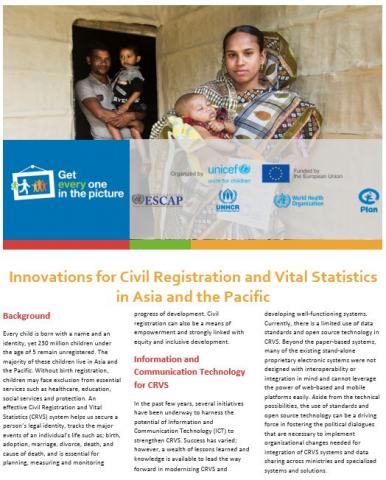National Baseline on Civil Registration and Vital Statistics in Cambodia
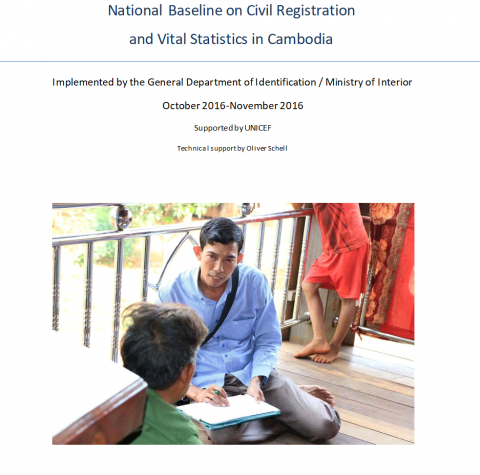
|
The CRVS community in Asia and the Pacific has reflected on where it stands at the midpoint of the CRVS Decade (2015-2024) during the Second Ministerial Conference. Following this celebration of progress, many of our partners and member countries are leading actions to fill the remaining gaps. To learn more about CRVS in Asia and the Pacific, please subscribe to our newsletter, which offers a monthly panorama of CRVS actions throughout the region Previous editions can be found here. |

The purpose of this report is to review the available data, both quantitative and qualitative, on the type and magnitude of gender-related under-registration of vital events and non-possession of adult identity documents in Asian and Pacific (AP) countries, and their possible consequences, and the availability and dissemination of sex-disaggregated vital statistics by country or groups of AP countries.
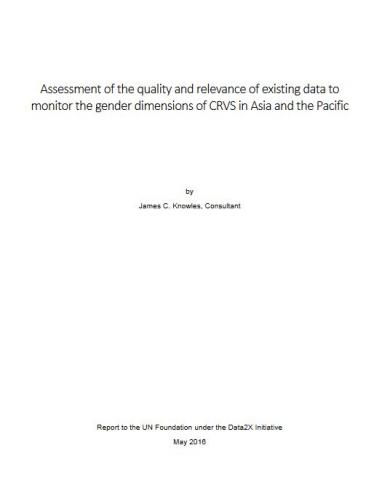
The material was presented by the United Nations Economic Commission for Africa (ECA) at the First Government Forum on Electronic Identity in Africa, organized in Dar-Es-Salaam, Tanzania on 2-4 June 2015.
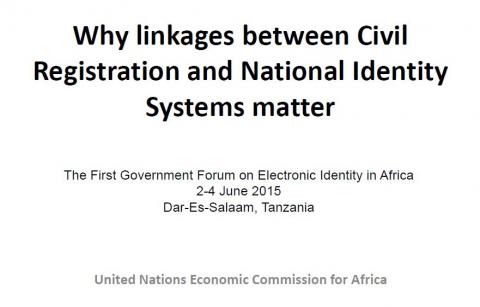
Articles
Events

ESCAP recently launched the Asia-Pacific SDG Baseline Report during a presentation of regional perspectives on the implementation of the Sustainable Development Goals (SDGs). The presentation was held, during the 2017 High-level Political Forum on Sustainable Development (HLPF) in New York.
The new report establishes a baseline for the SDGs by illustrating the development gaps that need to be addressed for the successful implementation of the SDGs. The analysis focuses on global SDG indicators to assess regional achievements for each SDG in the baseline year 2015. It applies a subset of these indicators to illustrate the progress made since 2000 and progress needed to meet the 2030 targets.
The Ministry of Justice of Viet Nam hosted the launch of the National CRVS Steering Committee in Hanoi on 16 June 2017 to announce the Viet Nam CRVS National Action Programme (2017- 2024).
The World Health Organization estimates that 65 percent of all deaths worldwide –around 35 million each year– go unrecorded. Moreover, millions of those deaths recorded, lack a reliable cause of death. Without this information, government officials, public health leaders and founders cannot make informed decisions.
The World Bank's ID4D program has published the third annual update of the Global Dataset on the estimated number of people around the world without an officially-recognized ID - 1.1 billion - including 357 million in South Asia and 82 million in East Asia and the Pacific.
This study aims to assess the quality of mortality data from the registration system of Thailand. The study takes advantage of the Kanchanaburi Project by comparing the deaths found in the annual censuses to those recorded in the civil registration system in order to measure the level of under-registration. The age and sex pattern of death registration found in this study might be useful information in adjusting the data from this source.
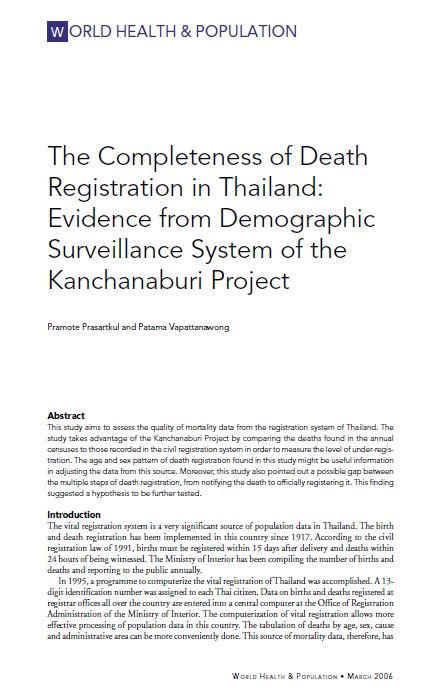
An effective Civil Registration and Vital Statistics (CRVS) system helps secure a person’s legal identity, tracks the major events of an individual’s life such as; birth, adoption, marriage, divorce, death, and cause of death, and is essential for planning, measuring and monitoring progress of development. In the past few years, several initiatives have been underway to harness the potential of Information and Communication Technology (ICT) to strengthen CRVS.
